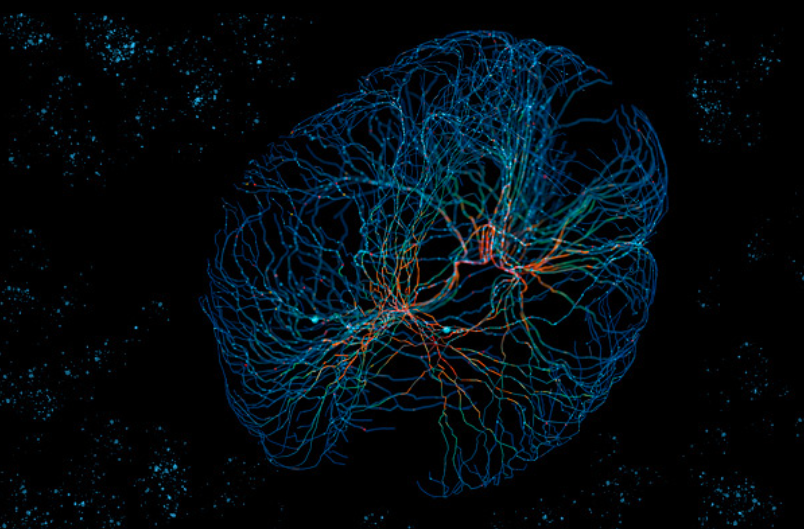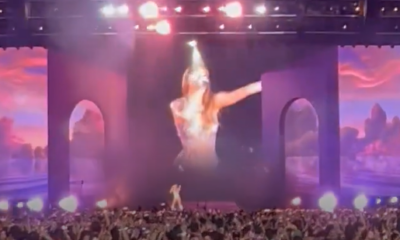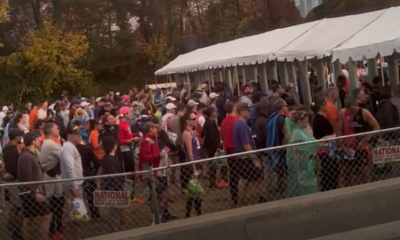NEWS
Near-Death Experiences Recorded By Brain Scans In New Study of Cardiac Arrest Survivors
Published
8 months agoon

Courtesy of mit/Instagram
Brain scans of patients in cardiac arrest whose hearts were stopped for up to an hour before they were revived by cardiopulmonary resuscitation (CPR) showed signs of activity linked to thought and memory, according to a new study.
The study’s authors say their results lend support to common reports from survivors of death experiences, and show that “the recalled experience surrounding death now merits further genuine empirical investigation without prejudice.”
The study, led by researchers at NYU Grossman School of Medicine and published Thursday in the journal Resuscitation, found that “some survivors of cardiac arrest described lucid death experiences that occurred while they were seemingly unconscious.”
Among 567 cardiac arrest patients studied across 25 mostly U.S. and British hospitals, only 10% recovered enough to be discharged from the hospital. Among those who survived, 40% recalled “some degree of consciousness” during CPR that was not indicated by standard measures.
Researchers used electroencephalogram (EEG) technology to record brain activity while patients were in the process of being resuscitated with CPR. Among survivors, 40% had brain activity that “returned to normal, or nearly normal, at points even an hour into CPR.”
The patients showed spikes in gamma, delta, theta, alpha, and beta brain waves, which are associated with higher mental function, the researchers said.
“Although doctors have long thought that the brain suffers permanent damage about 10 minutes after the heart stops supplying it with oxygen, our work found that the brain can show signs of electrical recovery long into ongoing CPR,” said senior study author Sam Parnia, MD, PhD, director of critical care and resuscitation research at NYU Langone Health.
“This is the first large study to show that these recollections and brain wave changes may be signs of universal, shared elements of so called near-death experiences,” Parnia said.
Those who are revived from the brink of death have long reported awareness and lucid experiences, such as “a perception of separation from the body, observing events without pain or distress, and a meaningful evaluation of their actions and relationships.”
The researchers say their study confirms these experiences are distinct from dreams, hallucinations, delusions or CPR-induced consciousness.
The study’s authors say that more research is needed, but they hypothesized that the “flatlined” brain, as it’s dying, removes inhibitory systems, possibly allowing access to additional “dimensions of reality,” in particular the widely-reported lucid recall of all memories stored over a lifetime.
Although many people report experiencing a lifetime of memories in the moments around death, researchers say the evolutionary purpose of such a phenomenon is not understood.
The authors wrote that while studies so far “have not been able to absolutely prove the reality or meaning of patients’ experiences and claims of awareness in relation to death, it has been impossible to disclaim them either.”
Continued research may also lead to “new ways to restart the heart or prevent brain injuries, and hold implications for transplantation,” Parnia said.
TMX contributed to this article.
More From Lifestylogy
-


Easy Air Purifier DIY As Shown By Palmer Ace Hardware…
-


Olivia Rodrigo GUTS Tour Kicks Off In Thousand Palms, CA:…
-


Man Who Gained TikTok Following Playing Dead Set to Appear…
-


More – Taylor Swift Eras Tour Continues in Singapore
-


More – 2022 NYC Marathon: Runner Shares That Getting To…
-


Tokyo – Beyonce Smiles as Fan Hugs Her/Jumps Around Excitedly…
-


Easter Bunny Brings Smiles to Children at Broward Health Med.…
-


More: SantaCon Scenes In Manhattan
-


Kevin Jonas Sr. Joins Sons Onstage At Nashville Jonas Brothers…
